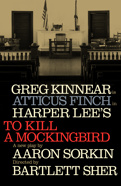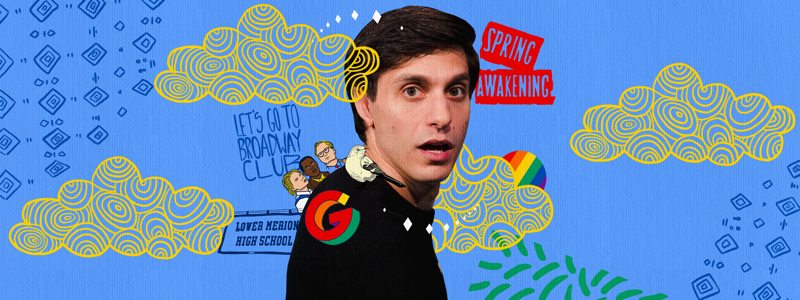
(Photo by Caitlin McNaney/Illustrations by Ryan Casey for Broadway.com)
To Kill a Mockingbird's Gideon Glick on Channeling Truman Capote, Spring Awakening & More on Show People
As a Broadway performer, Gideon Glick has had a wide range of experiences: He made his debut as a teenager in the Tony-winning musical Spring Awakening. He had a long road in the development of Spider-Man: Turn Off the Dark. Though he didn't make it to opening night of the production (his Geek Chorus character was written out of the show). Glick then went on to earn acclaim leading Joshua Harmon's Significant Other; though the play only ran for 61 performances. Now, he's landing laughs and touching hearts as Dill in a big Broadway hit: Aaron Sorkin's To Kill a Mockingbird. Glick stopped by Show People with Paul Wontorek to discuss going from Celia Keenan-Bolger fan to Broadway BFF, coming out of the closet without shame and much more.
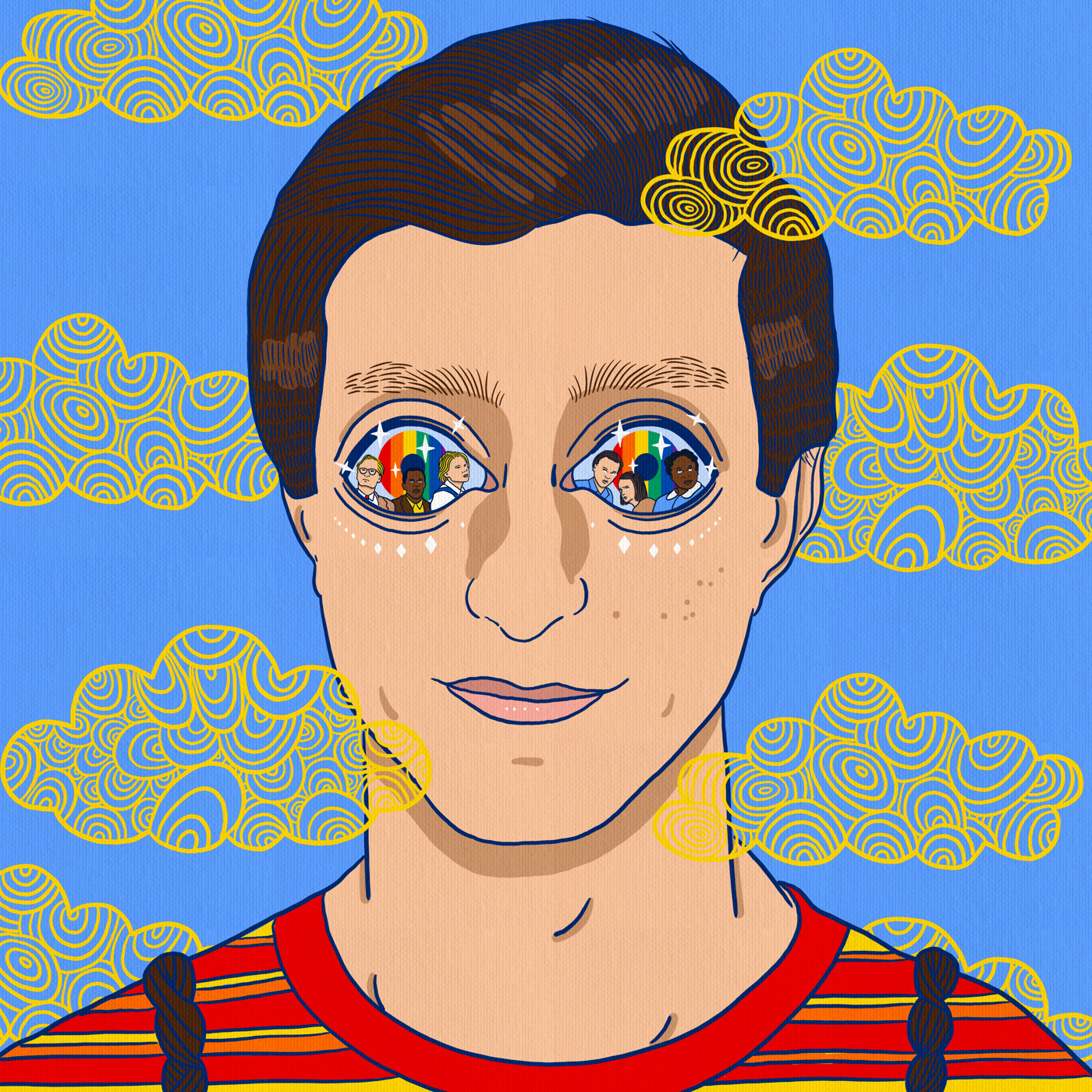
1. HE FEELS TO KILL A MOCKINGBIRD IS SPECIAL
“It’s amazing to look out and see 1400 seats being taken up and people receiving the show in an uproarious way. The laughs are high. The tears are high. It’s really exciting. Sometimes they’re amorphous blobs, but you know where the important people are, so sometimes your eye catches them. You freak out a little bit, and then you move on. For me, because I’ve been around the block, I know when to take stock in this. The show is doing well, and it’s such a good company of people. It doesn’t always happen like this.”
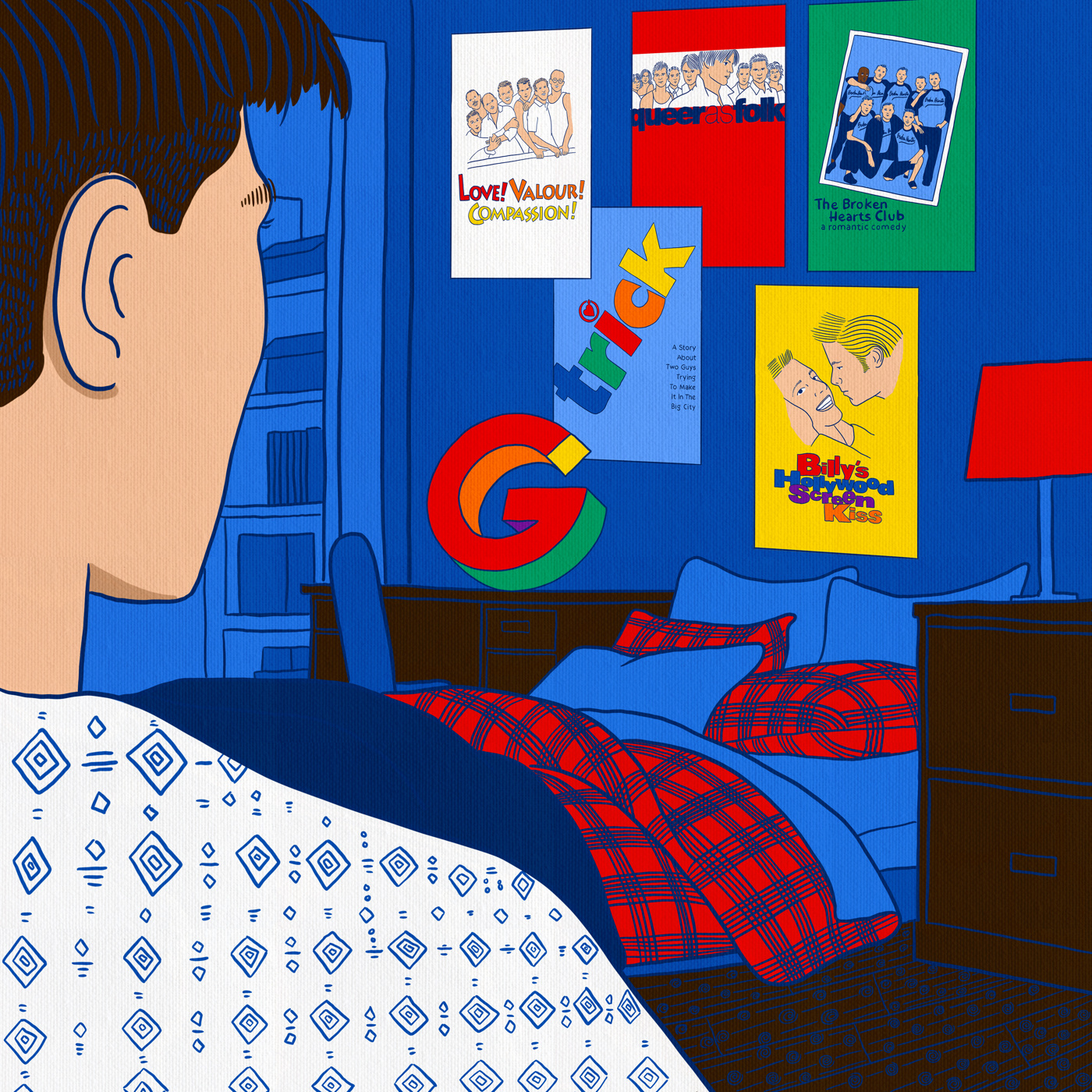
2. HE FELT COMFORTABLE COMING OUT AT A YOUNG AGE
“I started coming out when I was 12. I was super precocious. I was a curious kid. I started doing professional theater when I was around 11. I met full-fledged homosexuals. I have a pretty liberal family. My mom’s friend was a leading scholar of homosexuality in the media, and he kind of became my gay fairy godfather: He gave me VHS tapes of all these queer movies and TV shows. I was fortunate. It was a no-brainer for me. I never felt shame attached to my sexuality.”
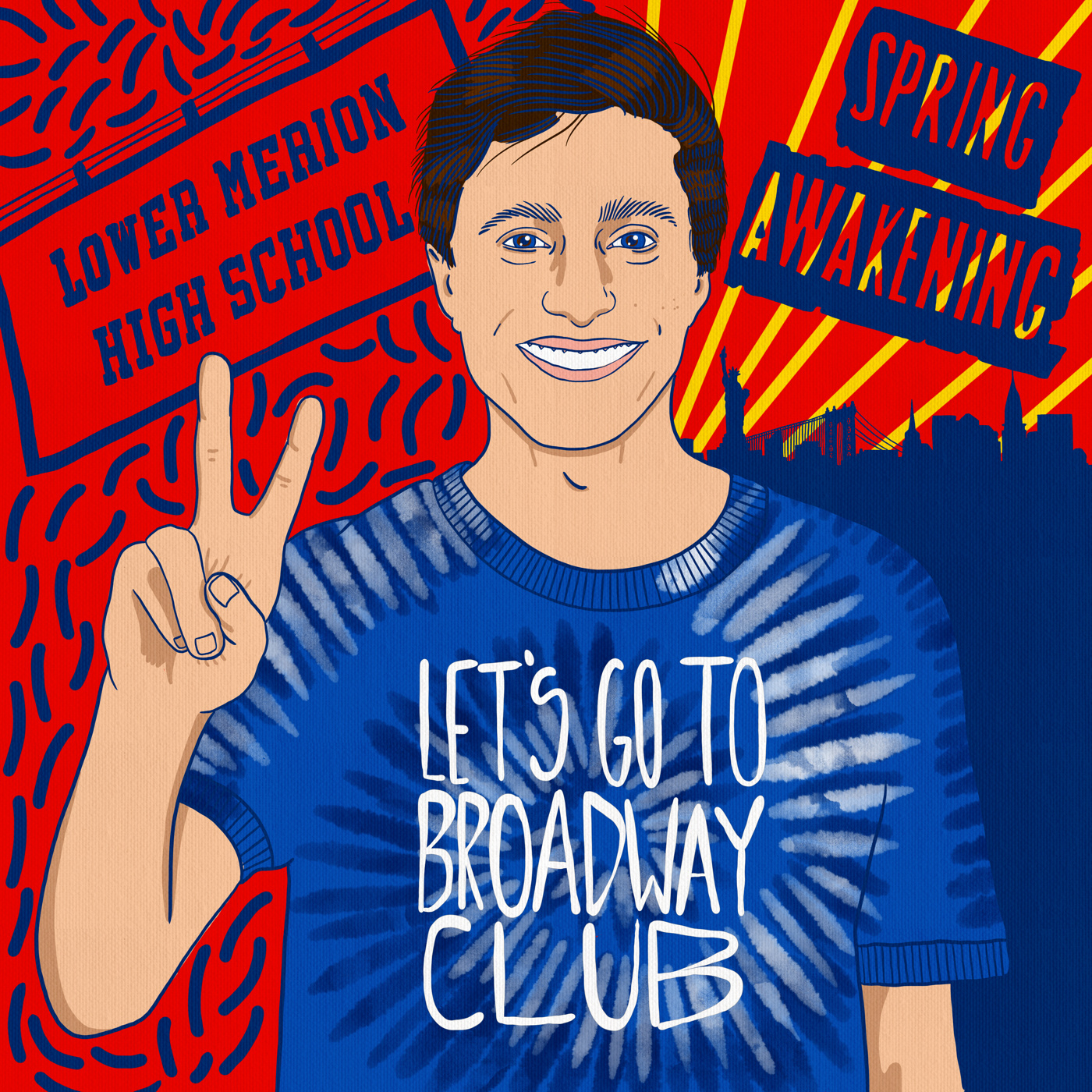
3. SPRING AWAKENING GAVE HIM SENIORITIS
“I was 17 when I did Spring Awakening off-Broadway. It felt like summer camp: these very talented kids coming together. For me, it’s a show I would have been really into as an audience member. When I was auditioning, I was like, ‘This music is amazing.’ I was a senior in high school, so I was being tutored. I went to prom. I don’t know if I went to graduation. I have no recollection. I had promised my best friend I would go to prom with her. If I hadn’t, I wouldn’t have gone. I was ready to leave high school. I think I was more of a bad boy in high school towards the end because I was over it. I was experimenting with lots of things. That was my more radical phase.”
Other must-read highlights:
ON TRUMAN CAPOTE'S INFLUENCE ON DILL AS A CHARACTER
“Truman Capote and Harper Lee grew up next door to each other in Monroeville, Alabama, which is where Maycomb County is based off of. The odds of that are so extraordinary in the deep, deep south. They actually promised each other that they would put each other in their first books. So, Dill is young Truman Capote. Truman Capote’s first published book was Other Voices, Other Rooms in 1948, and there is a character in it named Idabel, who is this butch, tomboy-esque girl a la Scout. That’s Harper Lee. I think this adaptation really pulled from Truman Capote’s life a little bit more. I did a lot of research reading his work and his biographies. His memorial was actually at the Shubert Theatre. I’m not playing Capote, but I’m 100 percent inspired by him.”
ON ADDING HIS FLAIR TO DILL
“I feel like I’m finally living my dreams. I was a young queer boy. Not in the south, but I get to explore that and be unabashed about it in a really big Broadway play where you don’t necessarily expect that character to be that way. It’s not about being a child and doing child mannerisms. It’s about honoring the spirit of a child and honoring the spirit of Capote. The character of Dill is ostentatious. He’s big. He’s grandiose. It’s a very fine line. We spent a lot of time perfecting that.”
ON HIS CO-STAR CELIA KEENAN-BOLGER
“I still kind of marvel at it—that I get to be around her and that I get to see her work every day. She’s one of the greats. I’ve always been a gigantic fan. There’s something remarkable about her that nobody else has. She cares about social justice and political issues. She’s a good person and a strong person, and she’s a fighter too.”
ON SIGNIFICANT OTHER
“That was a big growth moment for me, Significant Other. It was a very different generation that that play was speaking to. It was kind of the Girls of theater. It encapsulated something that theater doesn’t normally. The fact that it made it to Broadway was really extraordinary.”
ON SPIDER-MAN'S SILVER LINING
“It was a pretty complicated process. I was always interested in Julie Taymor’s version. She was doing something interesting with it. I’m a big mythology nerd. It was part of what I studied in college. [Taymor] stated that comic books are our modern day mythology, which I found super interesting. What was hard was that people weren’t coming to enjoy the show. They were coming to leer at the show. They wanted something to go awry, so there was a big disconnect between the actors onstage and the audience members. They would yell at us. They would talk back to us. It wasn’t pleasant. They had to pay out my contract because I was written out. I wasn’t fired, so they had to honor the whole contract. I went to Paris. I rented an apartment. Stephen Karam and Sarah Steele came to visit me. It was like my Eat Pray Love.”
Watch the full episode of Show People with Paul Wontorek below!
Interview has been edited and condensed for clarity.
Did you know Show People is available as a podcast? Listen to your favorite stars talk Broadway and beyond on your way to work, the gym, the theater and more on iTunes and Spotify.
